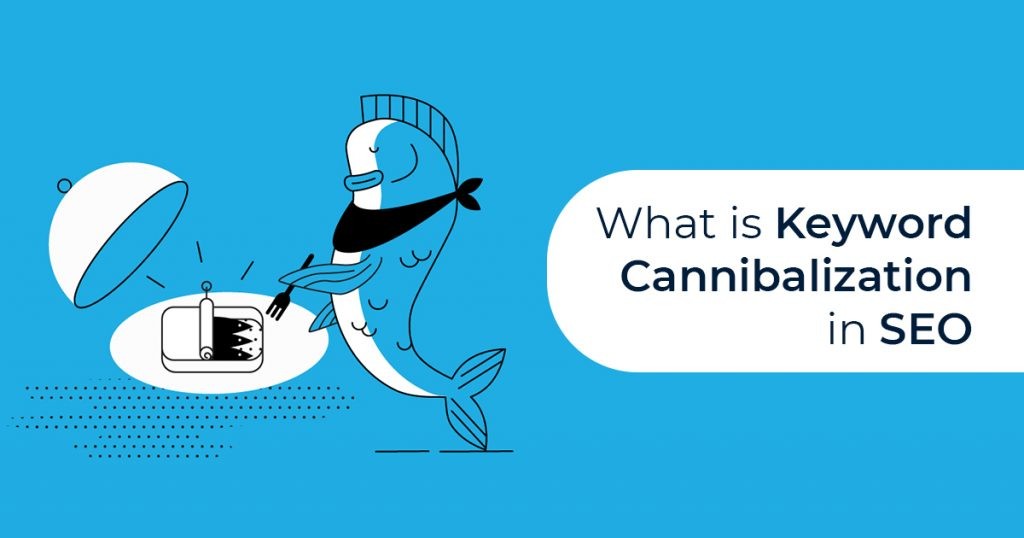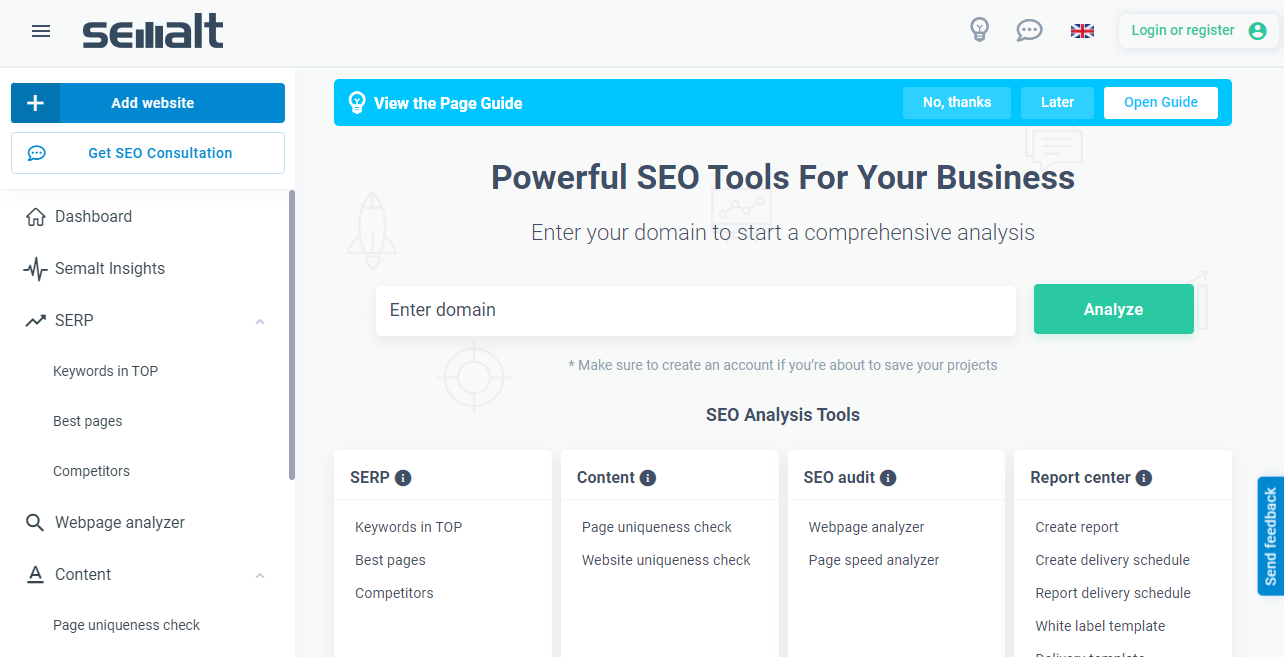What Is Keyword Cannibalization And Is It Always A Threat? - Semalt Expert

One of the key elements of any SEO strategy is the proper layout of content on the pages. However, sometimes our content gets messy, and then content cannibalization can occur on our site. What is keyword cannibalization? Is it always a serious problem on a website? Read our latest article and learn more!
Keyword cannibalization - what is cannibalization in SEO?
Keyword cannibalization, often also called content cannibalization, is a problem that occurs when more than one URL is displayed for a given phrase within one domain.
In practice, this means that there are at least two subpages on our website that have been optimized for the same keywords. The search engine algorithm, trying to match the results to the user's query as best as possible, is not sure which of the subpages it should display. This inaccuracy causes our URLs' positions to fluctuate significantly - pages switch between each other in the search results, sometimes showing one and sometimes the other.
Importantly, the Google algorithm considers keyword cannibalization to be a negative phenomenon that should be avoided, as it carries some potential problems that may lower the key SEO indicators for us.
What can cause keyword cannibalization?
The problem of cannibalization can affect very different websites, which usually unknowingly generate similar content to a large extent while making several mistakes.
So where does cannibalization come from? You may ask! Well, the most common mistakes that are the source of keyword cannibalization include:
- no content strategy planning and optimization of several URLs for the same keywords;
- having many articles on the same or similar topics;
- unstructured internal linking (same anchor text leading to different subpages or too few links leading to the most important content);
- inconsistent external linking;
- and ill-considered page structure (too few or very similar categories).
Each of these phenomena can be a reason for cannibalization and lead to significant drops in visibility, so it's worth keeping your finger on the pulse and watching if they occur within your website.
How does content cannibalization affect a domain?
It is not without reason that the cannibalization of key phrases is considered a negative phenomenon that can cause us a lot of trouble. Its effects can often be observed "with the naked eye", especially if we regularly monitor the visibility of our pages.
The impact of negative keyword cannibalization on a page is manifested by:
- high fluctuations of position in search results (cannibalized pages "exchange" positions with each other);
- a sudden decrease in traffic on the cannibalized subpage (as well as lower CTR, i.e. click-through rate);
- weaker and less significant positions of pages positioned for a given keyword (subpages "share" the power among themselves, which may make them not strong enough individually to occupy positions in the top 10).
Detection of content cannibalization within the site
How can I tell if my site is affected by keyword cannibalization? There are several ways to do this, but here are two that can be used together to maximize their effectiveness.
Selected tools supporting the detection of cannibalization are the:
- Dedicated SEO Dashboard
- Google Search Console.
Another option to detect this problem is to use popular crawling tools.
Dedicated SEO Dashboard

The first is to use Semalt's Dedicated SEO Dashboard tool, which is not only perfect for keyword research but also has the ability to check for cannibalizing URLs. Using the Dedicated SEO Dashboard, we can display information such as the current and previous URLs that appear in search results for a given phrase, position changes and estimated traffic generated by the website.
Google Search Console
With this tool, we will need the contents of the Performance report. Using filters, we can check which URL addresses are displayed for a given query. If there is content cannibalization within the domain, by entering the selected keyword, in the Pages tab we will see several subpages optimized for the same phrase.
By analyzing the available data, we can easily find out which of the subpages is stronger and on which it is worth focusing the power currently divided between two cannibalizing pages. Typically, the "weaker" one will rank lower in search results and have a lower click-through rate than the primary URL.
Sometimes it happens that two pages belonging to our website appear in the top 10 search results, one in a higher position, and the other much closer to the 10th place. Without examining this situation in depth, it can be said that this is a positive circumstance, as both sites are at the top of the SERP results. However, one should ask oneself whether this is really the case and whether the URL at the bottom of the list does not prevent our stronger side from entering the top 3.
Keyword cannibalization - how to eliminate the problem?
Fortunately, keyword cannibalization is an anomaly that can be fixed in a relatively simple way. There are several solutions to deal with this problem, so depending on the situation, you can use one of the following:
- Combining several articles into one - merging the content can make it enriched with additional data, more valuable for the search engine (however, remember to use the 301 redirects!).
- Using the canonical tag (rel="canonical") - this is a solution worth using if you want to keep all URLs. The canonical tag tells the browser which page from the selections should be considered the home page (unfortunately, Google doesn't always listen to our suggestions).
- Transforming the profile of internal links - that is, ensuring that the main address of the page is linked in more places on our domain and that it has the correct anchor text, different for different pages.
- Deoptimization of similar content (aimed at depositioning the subpage) - if we do not want to remove content from our domain, we can distinguish them. Proper (de)optimization of metadata, keywords and linking profiles of various subpages can make pages stop fighting for position.
- Prevent duplicate content from being indexed (using the meta robots tag) - This is the last resort to deal with keyword cannibalization and should be avoided if the page is generating value for the site.
If your site is affected by cannibalization, you can also choose to fine-tune the text in the anchors of your Sponsored Articles (external linking). However, this is not the simplest solution, as it involves the participation of the owners of the websites where your content has been published.
Prevention, i.e., a good SEO strategy
A much better tactic is the so-called prevention, i.e. the right content design strategy within the site. Properly shaping the architecture of URL addresses, title tags, and categories and planning the distribution of keywords is the best way to counteract the possibility of content cannibalization on our website.
Is keyword cannibalization always a negative phenomenon? - an example of cannibalization
Here we will take an example to understand whether cannibalisation is a negative phenomenon. Let's take an example of two pages appearing on the query "Cherry Tomato Puree", containing recipes for "Homemade Dried Cherry Tomatoes" and "Homemade Tomato Puree".
In this case, let's say that the position of the article "Homemade dried cherry tomatoes" has changed a lot over the last few months. The positioning differences were really large, differing by up to 25 places when the URL went from 30 positions to 5.
How can I solve this problem? There are several options, but if we want to keep both addresses that generate valuable traffic on our website, we can follow the following action plan:
- Determining the cause of cannibalization, e.g. similar keyword phrases and content topics.
- Deciding which of the pages is more important to us - generates more traffic, and ranks higher.
- More accurate optimization of the selected subpage, e.g. the one regarding "Homemade tomato puree" for the keyword "cherry tomato puree".
- Adding a link to our target page to the second address (internal linking), containing the exact match phrase in the anchor text (in this case, "Cherry Tomato Puree").
- Possibly de-optimizing the second article by removing or replacing the same key phrases in it.
Positive cannibalization - when is keyword cannibalization not a problem?
In most cases, cannibalization of content is considered a negative phenomenon, however, there is an eventuality for which this situation is perceived as a positive state of affairs. Nevertheless, for this to happen, the domain on which the cannibalization takes place must have high authority.
If this factor is met and additionally the content on the website is well optimized in terms of SEO, the phenomenon of so-called positive cannibalization may occur. This is a situation where in high positions in the search results, one below the other, there are URLs leading to various content on our website.
Cannibalization in SEO - summary
Keyword cannibalization is a phenomenon that is worth monitoring and reacting to on an ongoing basis. The causes of the problem vary, as do its possible solutions, but the effect on domains is in most cases negative. Instead of wasting precious hours of work fixing the undesirable effects of cannibalization, it is better to spend them on planning our actions more carefully.

